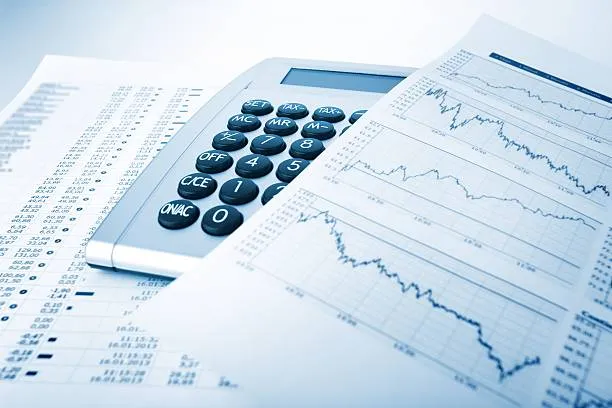This article is about the market value of equity formula, which gives you the market value of your company in percentage terms. This article will provide you with a step-by-step guide to calculating the market value of your equity.
What is Equity Value?

Equity value is the net worth of a company divided by the number of outstanding shares. It tells you how much money each shareholder would get if the company were to go bankrupt.
Equity value is also known as book value, shareholders’ equity, or net worth.
There are many ways to calculate equity value, but the most common is to use the market value of a company’s stock.
- To do this, you need to know the price of a share of stock on the open market and the number of shares outstanding.
- The market value of a company’s stock is what someone would be willing to pay for it.
- Equity value is simply the market value of a company’s outstanding stock. It’s calculated by multiplying the number of shares outstanding by the price per share.
- Sometimes, a company’s debt or other liabilities are also included in equity value.
- The market value of a company’s stock can change over time, depending on how well it’s doing financially and what other stocks are selling for.
- The market value of a company’s stock can also be affected by news about the company, such as if it announces a merger or goes public with shares for sale.
- Equity value is simply the market value of a company’s outstanding common equity divided by the number of shares outstanding.
What is the Market Value of Equity?

The market value of equity is the price at which a company’s outstanding equity securities are trading on the open market.
Equity represents a stake in the company and is a key component of a company’s overall value. The market value of equity can be used to calculate a company’s financial stability and potential for growth.
The market value of equity is the total worth of a company’s outstanding shares, divided by the number of shares outstanding.
Equity is important because it helps determine a company’s ability to pay off its debts and finance future growth.
The Market Value of Equity (MVE) is a measure of a company’s equity value. It is determined by subtracting the total liabilities of a company from its total stockholders’ equity.
The MVE can be used to determine a company’s profitability and provide an indication of its riskiness.
The market value of equity is the total cash and stock value of a company’s outstanding equity. Equity is the portion of a company’s assets that represents its ownership interest in the business.
When calculating the market value of equity, companies must take into account both the issued and outstanding shares of stock.
The market value of equity can be used to calculate a company’s overall financial stability and performance.
How to calculate the market value of equity

There’s no single answer to this question because it depends on a company’s specific situation and its stock price on the day you want to calculate the market value of equity. But here are some tips that can help you get started.
To calculate the market value of equity, you need to know two pieces of information: the company’s net worth and the stock price on the day you want to calculate the market value of equity.
Net worth is simply how much money a company has in total – what’s left after liabilities are paid off. The stock price is what investors are paying for a share of a company, and it can be found online or at your local brokerage firm.
Once you have these two pieces of information,
⦿ There are four steps you can follow to calculate the market value of equity:
- Find the book value of the common stock on that day. Take the total number of shares outstanding and divide it by the number of shares you want to find. For example, if there are 1,000 shares outstanding and you’re looking for the market value of equity, then the answer is 10%.
- Calculate what the company’s net worth will be on that date based on its balance sheet statement.
- Divide the total market value of equity by this projected net worth – in this example, 100% divided by $80 million equals 10%.
- Find a financial calculator or spreadsheet program (see below) and plug-in these numbers to get your answer. In our example, you’ll get $10.5 million (the market value of equity). This is what the company’s equity should be worth in exchange.
It is an important measure of a company’s overall financial health and can be used to help make comparisons among companies.
⦿ There are a few things to keep in mind when calculating equity value:
- The value of a company’s equity will fluctuate with the stock market, so it is important to use a reliable source for stock prices.
- The value of a company’s equity will also change depending on the terms of its debt since lenders will demand higher returns for loans that are backed by equity.
- Equity values can be distorted by factors such as spin-offs, mergers, or dividends paid out (this is why you sometimes see companies with high equity values but low stock prices).
- When calculating a company’s equity value, do not forget about goodwill (assets that have been acquired for less than the purchase price). Goodwill is worth approximately twice the amount of tangible assets on its own, so it should not be a discount rate when calculating a company’s equity value.
- In some cases, a company’s cash flow may be negative. This usually happens when the company is investing in something that will increase its future cash flows.
- When calculating a company’s equity value, do not forget about debt—this is how it is possible to have a stock price of 2 dollars per share but still have a negative net income, or for companies to have high debt ratios and low equity values.
- When calculating a stock price, do not forget about the effect that transaction costs have on the bottom line. Transaction costs can be reduced by buying shares in large quantities (buying 100 shares instead of 10).
How do you calculate the market value of equity for a private company?

The market value of equity for a private company is calculated by taking the current share price of the company and dividing it by the total number of shares outstanding.
This number represents the amount of money that would be available to shareholders if the company was sold in the open market.
The market value of equity is calculated by multiplying the current share price of the company by the total number of shares outstanding.
This figure is then divided by the company’s book value to give a market value per share.
There are some steps you can follow to calculate the market value of equity for a private company
- The first step is to calculate the book value of a company. This is done by subtracting out all the entity’s liabilities from its assets. The result gives the total amount of money that would have to be paid out if the company was to be liquidated.
- The second step is to gross up their cash for tax purposes. This can be done in several ways but it is useful to do so using equity and book value as points of reference.
- Using this figure you then multiply it by four to give the number of times a share has been diluted (diluted shares are more valuable). Once this has been done you then multiply that amount by the share price to give an approximate figure of market value per share on a pro-rata basis.4.
- Once you have a figure (in round figures the market value of 5,000 shares diluted four times) you then calculate the cost base, using the formula: Market value per share x number of shares held / cost base. This provides an approximate figure of what your company is worth on its own without any debt or other liabilities attached.
- In this example let’s say that the company has a cost base of $5,000 and you divide it by 5,380 to give an approximation of its market value per share. You then multiply this by 0.02 to get approximately $80 per share on a pro-rata basis ($5,000 x 0.02).
- If I hold 50% of the company (this is on a pro-rata basis), then I hold 50% of the market value compared to my cost base. If I have $5,000 worth of shares and if the company’s actual market value is $1,600 (which is our example), then I would have to pay $600 for those shares ($1,600 x 0.02).
- Now let’s take this one step further. Let’s say I sold out for a 10% profit because I thought that was a good price. When you divide the total amount of my profit by the total number of shares held, you get 100%. This means that 100% of all profits are made from my holding percentage.
What is the difference between market value and equity value?
The market value of equity formula is a way of calculating the worth of a company’s stock based on what it would fetch on the open market.
Equity value, on the other hand, is the actual worth of a company’s stock, including any debt or other liabilities that may be attached to it.
The market value of equity formula is used to calculate the market value of a company’s equity. Equity value is used to measure a company’s ownership stake in its assets.
- The market value of equity is the price at which a company’s shares are currently being traded on a stock exchange.
- The equity value of a company is the total value of its assets minus the total liabilities of the company.
- The market value of equity is the price at which a company’s stock is currently trading on the open market.
- The equity value of a company is the total value of the company’s outstanding shares, minus any liabilities on the balance sheet. Market value and equity value are two different measures of a company’s worth.
- Market value is based on what buyers and sellers are willing to pay for a company’s stock, while equity value takes into account what each share of stock is worth.
One important consideration when calculating market value is liquidation value. This is the price at which a company’s assets could be sold quickly and easily to pay all its debts.
A high liquidation value indicates that there is a strong interest in buying the company’s assets, while a low liquidation value suggests that there may be less interest in buying the company.
Market value and equity value are two different ways to measure a company’s worth, but they both provide an accurate snapshot of how much money shareholders are worth.
There is a significant difference between market value and equity value. Market value is the price at which an asset or security is currently being traded on a stock exchange.
Equity value is the value of a company’s assets, minus its liabilities. A high equity value indicates that a company has substantial assets left to liquidate, while a low equity value indicates that there is little to be used for debt repayment.
What is the price per book value?

Price per book value is a common measure of a company’s stock price relative to its underlying assets.
It is calculated by dividing the market value of the company’s outstanding equity by the number of outstanding shares.
The price per book value may be helpful in comparing the value of different companies, and in assessing whether a particular deal is favorable or unfavorable.
Price per book value is the price of a stock divided by the book value of the company. This is a useful metric for comparing prices between companies.
For example, if Company A has a price per book value of $50 and Company B has a price per book value of $100, then Company A is cheaper than Company B.
Price per book value is the price at which a company’s equity could be sold in an orderly market. Equity is the portion of a company’s assets that belongs to its shareholders.
Price per book value is a calculation that shows how much equity security would be worth if it were sold in its entirety to the public.
The calculation takes into account the number of shares outstanding, the price of the underlying stock on the day of the sale, and any dividends or other distributions paid on the security during that period.
Price per book value is a calculation used to determine the market value of equity. The formula uses the number of outstanding shares and the closing price of the stock on a particular day to calculate the price per share.
Price per book value is the price at which equity security would be sold if it were offered to the public, and the value of the security would be calculated assuming that no dividends are paid and that the security is bought on the open market.
What is book value per share?

Book value per share is the book value of a company divided by the number of outstanding shares.
This metric gives investors an idea of what a company is worth without any consideration for how much cash it has on hand or what its future earnings might be.
By contrast, the market value per share takes into account factors like the price at which a stock is currently trading and the expected future cash flow from the company.
The market value of equity formula is used to calculate the book value per share of a company. Book value is the total value of all liabilities and assets divided by the number of shares outstanding. This measure is used to determine a company’s worth on the open market.
Book value per share is the net worth of a company, calculated by subtracting total liabilities from total assets. This figure is important because it reflects the value of a company’s equity.
Book value per share is the market value of a company’s equity divided by the number of shares outstanding.
Book value is important for several reasons. First, it can be used to determine the worth of a company’s assets. Second, it can be used as a basis for determining whether a company is overvalued or undervalued.
Finally, book value can be important when considering whether to sell a company or invest in it.
Book value per share is the market value of a company’s equity, divided by the number of shares outstanding. Book value is used as a way to determine a company’s net worth.
Book value per share is the market value of a company’s equity divided by the number of outstanding shares. This figure gives investors an idea of how much each shareholder is worth.
What is the Book Value of Equity?
Book Value of Equity is the market value of a company’s common stock divided by the total number of outstanding shares.
Book Value is calculated using the net asset value (NAV) calculation or the closing price per share.
NAV is simply the value of a company’s assets minus liabilities. In other words, it’s what a hypothetical investor would be willing to pay to acquire all of the company’s assets.
NAV can be found on most company websites and can be used to calculate book value.
Book value is also important because it reflects how much equity a company has available to finance the growth rate or allow for dividends.
The book value of equity is the net worth of a company divided by the number of shares outstanding.
This number provides an accurate measure of how much money shareholders are actually getting back for their investment.
The book value of equity capital is the total value of a company’s outstanding common share stock, divided by the number of shares outstanding.
This figure reflects the current market price at which the company’s equity was originally issued and is a valuable indicator of a company’s health.
A high book value indicates that the company’s assets are worth more than its liabilities, while a low book value suggests that the balance sheet may be in trouble.
The book value of equity is the net worth of a company as determined by subtracting total liabilities from total assets. The book value of equity can be used to determine a company’s market value.
The market value of equity is the price at which a company’s stock is currently trading on the open market. Generally, the higher the book value of equity, the greater the value of a company.
Is a higher book value better?
In many cases, the market value of equity is thought to be a better measure of a company’s worth than the book value.
A higher market value indicates that the company’s stock is more valuable and may be worth investing in.
However, there are several reasons why the book value may be a more accurate measure of a company’s worth.
First, companies may issue new shares that dilute the ownership of existing shareholders. For example,
If a company issues 10 million new shares at $10 per share, the total value of the new shares would be $100 million. The $100 million would represent 10% of the company’s total assets, but would only represent 1% of the total number of shares outstanding (1 million out of 100 million).
This dilution would decrease the book value of each share by $10. This process continues until all shareholders have received less than their original investment, resulting in a lower book value for the company.
Second, companies may choose to reinvest their profits instead of paying out dividends. This decision would increase the book value as it would increase the number of shares outstanding,
But it would not increase the market capitalization value as much since investors are not looking for high yields on their investments.
The article examines the theory behind the “market value of equity” formula, which is often used by investors to determine a company’s worth.
The market value of equity is determined by subtracting the outstanding liabilities from the total stock value.
This calculation reflects the company’s level of financial strength and indicates whether shareholders are getting a fair return on their investment.
According to some equity market analysts, a higher book value is better for investors because it indicates that the company is more profitable and has a more stable financial position.
Proponents of this view argue that a company’s book value reflects its true economic value and that a high book value indicates that the company is in good shape.
Critics of this theory contend that a company’s book value does not always accurately reflect its true worth and that a low book value may be indicative of serious financial problems.
How to Calculate Book Value of Equity?

If you are looking to calculate the market value of equity for a company, there are a few steps you will need to take.
The first step is to figure out the book value of the company’s capital stock. This is simply the total value of all the shares of stock outstanding, plus any accumulated dividends that have been paid on those stocks.
To calculate this value, you will need to find out the current price per share of the company’s stock, and then use that figure to calculate the total number of shares outstanding.
Once you have this information, you can then use the stock price per share to find out the book value of each share.
The book value of equity is the total value of a company’s assets, less its liabilities. To calculate it, you subtract the total liabilities from the total assets.
Many people are unclear about what book value is and how to calculate it. Book value is simply the market value of equity on a company’s balance sheet. This can be easily calculated by subtracting liabilities from shareholders’ equity.
For example, suppose ABC Company has $100 in total liabilities and $200 in total shareholders’ equity. The book value of equity would be $0.00.
In this example, if ABC Company wanted to sell its equity, it would have to receive at least $200 per share in order to cover the book value of its equity.
⦿ Here are some steps for calculating the Book Value of Equity
1. On the balance sheet, list all of a company’s assets and liabilities.
2. Subtract any retained earnings that have not been distributed to shareholders from the total of assets and liabilities.
3. Divide this amount by the number of shares outstanding on the company’s stock.
4. Round down to the nearest whole dollar if you are required to do so – when calculating book value, you can use a dollar figure only because there is no decimal point in book value calculations.
5. The result is your “book value per share.”
6. To calculate your “book value per share” using a formula:0 = N/S = (A-L)/(B+L)Where:S = Shareholders’ equity (assets less liabilities)A = Total assetsB = Total liabilitiesL = Retained earnings
7. To calculate your “book value per share” using a formula:0 = N/S = (A-L)/(B+L)Where:S = Shareholders’ equity (assets less liabilities/shareholders’ equity)A = Total assets on the balance sheetB = Number of shares outstanding on the stock on the booksC = Book value per share – $10.00L-C= Book value per share – $20.00.
FAQ {Frequently Asked Question}
What is the Market value of equity formula
This article is about the market value of equity formula, which gives you the market value of your company in percentage terms. This article will provide you with a step-by-step guide to calculating the market value of your equity.
What is Equity Value?
Equity value is the net worth of a company divided by the number of outstanding shares. It tells you how much money each shareholder would get if the company were to go bankrupt.
Equity value is also known as book value, shareholders’ equity, or net worth.
There are many ways to calculate equity value, but the most common is to use the market value of a company’s stock.What is the Market Value of Equity?
The market value of equity is the price at which a company’s outstanding equity securities are trading on the open market.
Equity represents a stake in the company and is a key component of a company’s overall value. The market value of equity can be used to calculate a company’s financial stability and potential for growth.
The market value of equity is the total worth of a company’s outstanding shares, divided by the number of shares outstanding.How to calculate the market value of equity?
There’s no single answer to this question because it depends on a company’s specific situation and its stock price on the day you want to calculate the market value of equity. But here are some tips that can help you get started.
To calculate the market value of equity, you need to know two pieces of information: the company’s net worth and the stock price on the day you want to calculate the market value of equity.
There are four steps you can follow to calculate the market value of equity:
Find the book value of the common stock on that day. Take the total number of shares outstanding and divide it by the number of shares you want to find. For example, if there are 1,000 shares outstanding and you’re looking for the market value of equity, then the answer is 10%.
Calculate what the company’s net worth will be on that date based on its balance sheet statement.How do you calculate the market value of equity for a private company?
The market value of equity for a private company is calculated by taking the current share price of the company and dividing it by the total number of shares outstanding.
This number represents the amount of money that would be available to shareholders if the company was sold in the open market.
The market value of equity is calculated by multiplying the current share price of the company by the total number of shares outstanding.
This figure is then divided by the company’s book value to give a market value per share.
There are some steps you can follow to calculate the market value of equity for a private company
The first step is to calculate the book value of a company. This is done by subtracting out all the entity’s liabilities from its assets. The result gives the total amount of money that would have to be paid out if the company was to be liquidated.
The second step is to gross up their cash for tax purposes. This can be done in several ways but it is useful to do so using equity and book value as points of reference.
Related Term
- How to Write Business Plan?
- What is Finance Management?
- Finance Wheels And Tires
- Who Biomedical Waste Management?
- How do management buyouts work?
- What Are Business Management Jobs?
- What is Yield Management in Front Office?
- What is Management Quota in Mbbs?
- What is Financial Strategy | Financial Management
- Who is the principal federal official for domestic incident management?
- Which Resource Management Task Deploys or Activates Personnel And Resources
- Which Type of Business Is Strong Steel Manufacturers & Structural Steel
- How To Start Mustard Oil Business Plan
- What Is B2k Marketing | B2k Media Marketing?
- What Is B2k Marketing | B2k Media Marketing?
- What Type of Agreement Is Used To Form A Partnership Business Partnership Agreement?
- How Can The Extensibility of A Platform Benefit a Business?
- What are Finance Charges?
- What is Business Facebook Manager?
- The primary focus of strategic management is
- Why Knowledge Management is Important?
- Management is What a Manager Does?
- Which Helps Enable An Oligopoly To Form Within A Market?
- What is Undifferentiated Marketing | Undifferentiated Marketing Strategy?
- How To Use Rural Marketing Strategies To Increase Your Business Growth
- International Marketing Research
- Features Of International Marketing
- Functions of Marketing
- Scope of Marketing Research
- What do you understand by Surrogate Marketing
- Marketing Fundamentals
- 5 Ways to Use How Can Performance Planner Serve Your Business to Achieve Your…
- Nature And Significance of Management
- Marketing Intelligence and Planning
- What Is Service Marketing Triangle
Conclusion of the Market value of equity formula
In this article, we will discuss the market value of the equity formula and how it can be used to calculate a company’s net worth.
By understanding the market value of the equity formula, investors and other business owners can more accurately assess a company’s financial stability.
Additionally, when calculating the value of an investment in a company, knowing the market value of equity is essential for ensuring an accurate return on investment.
‣ I hope friends, through this article, I have given you information about the market value of equity formula You must have got the information. So share your suggestions with us.
Like this information Or have Something to share!
















